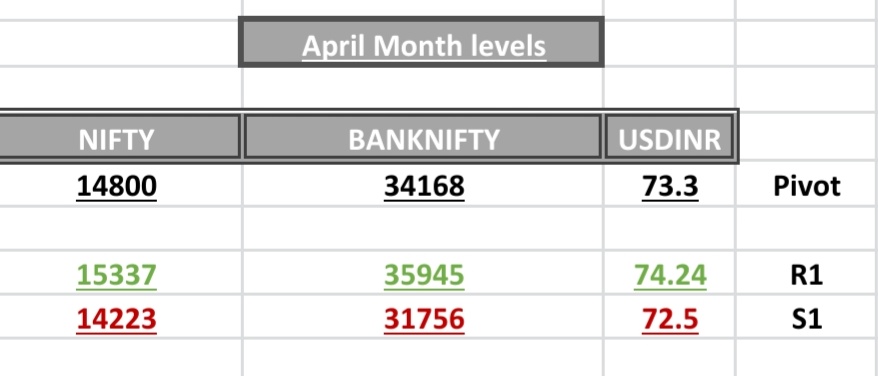Wish folks cared as much about countering the political culture of far right hyper-nationalistic populism that traffics in anti-Semitic tropes and naturalized conceptions of racial and gender hierarchies, as they care about dissing those who use the word “fascism” to describe it.
More from Seth Cotlar
Rush Limbaugh was given the Medal of Freedom at the State of the Union last night. Here's a bit on who he is.
— Media Matters (@mmfa) February 5, 2020
Viewer discretion is advised. pic.twitter.com/rWYbfnDThl
Limbaugh is also a good example of how the distinction between “respectable” conservatism and “the more radical fringe” can easily be overstated.
This Bill Buckley/Rush Limbaugh joint effort was published in 1993, just in case anyone thought being anti-PC was a new Trumpian dimension of American conservatism, or that National Review was above Rush's crass anti-intellectual populism. pic.twitter.com/XtnoW1yF4S
— Seth Cotlar (@SethCotlar) January 2, 2021
In 1992 George HW Bush had Rush Limbaugh open his final campaign event before Election Day.
At 1:30 on this video GHB *opens* with these words. "And may I start by thanking Rush Limbaugh. Last night, you know, Governor Clinton was at the Meadowlands with Richard Gere and other Hollywood liberals." https://t.co/La3Bcb6I8K
— Seth Cotlar (@SethCotlar) November 16, 2019
Rush descended from a well-off and well-connected family in Missouri, but he played the role of “pissed off Joe Six Pack” really well. He’s a perfect example of “plutocratic populism.”
Limbaugh’s cruel bigotry and aura of aggrieved entitlement was a feature, not a bug. In an era of shifting social mores, Limbaugh gave his listeners permission to be a-holes and be proud about it. He perfected the schtick that would get Trump elected.
January 6th. See you in D.C. https://t.co/vynZTv9lHb
— Donald J. Trump (@realDonaldTrump) January 1, 2021
Thanks (I think) to @z3dster for bringing this batshit tweet to my attention.
There's a long history of the American center-right and center-left laughing at this kind of stuff. It is indeed laughably ludicrous. But it's important to know that to millions of people, this is their truth. This is how they see the world. And now the President is condoning it.
One hallmark of fascism is that it defines "communism" as its enemy. One can be opposed to communism without being a fascist. But it's impossible to be fascist without being obsessed with the existential (and often hysterically overblown) threat of communism.
Every significant, US variant of fascism has depicted itself as a movement of Christian patriots defending the US from anti-American enemies of Christ. One can be a Christian and/or a patriot without being a fascist, but fascists almost always call themselves Christian patriots.
This statistic that 90 percent of Republicans presume Trump will win may prove far more important than any of the sort https://t.co/LXTkTYzNsA covers. It scares me shitless. https://t.co/9z3NmfIbmX
— Rick Perlstein (@rickperlstein) October 27, 2020
Full polling data here. I was asked to give a talk on campus about the Tea Party in 2010, and one of my main points was that it was a weakness of the movement that it had such a delusional perception of the American people. Oops.
Anyway...the dynamic described here has been a long time coming.
A GOP political culture that regards Americans who don't agree with them as existential enemies to the nation is the logical result of the GOP's longrunning culture war approach to politics. They've been telling conservatives they're "at war" w/ their fellow citizens for decades.
— Seth Cotlar (@SethCotlar) October 27, 2020
That's the weird, seemingly illogical, thing about the right's culture war. They simultaneously think of themselves as speaking for the majority of Americans, AND they think that they are the saving remnant protecting a decadent society from ruin.
What squares this circle is the assumption that "the real American people" consist of straight white, rural or suburban people, & anyone not in that category doesn't really count as an American. That's how right wing culture warriors can both be the "majority," and a minority.
Project Veritas assigned female undercover operatives to arrange dates with FBI employees and other officials and secretly record them, with the aim of capturing any disparaging comments made about Trump. The women had code names like \u201cBrazil\u201d and \u201cTiger.\u201d https://t.co/N7Yrjx5M5U
— The New York Times (@nytimes) May 13, 2021
Oh hey.
Gosh, look at that.
It’s all just so absurd, and yet so potent.

Here’s Anna Khait speaking at a pro-Trump, pro-steal the election rally last December.
This is why the founders separated church and state. pic.twitter.com/xJj9kjHyz2
— Seth Cotlar (@SethCotlar) December 12, 2020
More from Politics
Michael van der Veen begins Trump's defense: "The article of impeachment now before the Senate is an unjust and blatantly unconstitutional act of political vengeance" pic.twitter.com/xRaZHEPIaC
— Aaron Rupar (@atrupar) February 12, 2021
Es wird argumentiert, dass Trump nur habe sicherstellen wollen, dass die Wahl fair abgelaufen sei. Die Verteidigung zeigt Clips einzelner Demokraten, die der Zertifizierung von Trumps Stimmen 2016 widersprechen. (Dass es 2016 keinen von Obama gesandten Mob aufs Kapitol gab?Egal!)
Die intellektuelle Unehrlichkeit ist so unfassbar, ich weiß kaum, wo ich hier überhaupt anfangen soll; so viele fucking Strohmänner auf einmal.
Die Verteidigung spielt random Clips, in denen Demokraten “fight” sagen, fast zehn Minuten lang. Weil Trump 20mal am 6. Januar “fight” gesagt hat. Dies ist kein Witz. Komisch, dass sonst die Folge nie war, dass ein Mob das Kapitol gestürmt hat und Pence hängen wollte
WATCH: Trump's defense plays nearly 10 minutes of clips showing Democrats using the word "fight," to defend Trump using the word "fight" about 20 times in his speech to supporters before the Capitol riot began https://t.co/YUg7sgxuDX pic.twitter.com/3eMNp7E2S2
— CBS News (@CBSNews) February 12, 2021
“Dieser Fall geht um politischen Hass” Ich mein, ja. “Die House Managers hassen Donald Trump.”
So close.
You May Also Like
Decoded his way of analysis/logics for everyone to easily understand.
Have covered:
1. Analysis of volatility, how to foresee/signs.
2. Workbook
3. When to sell options
4. Diff category of days
5. How movement of option prices tell us what will happen
1. Keeps following volatility super closely.
Makes 7-8 different strategies to give him a sense of what's going on.
Whichever gives highest profit he trades in.
I am quite different from your style. I follow the market's volatility very closely. I have mock positions in 7-8 different strategies which allows me to stay connected. Whichever gives best profit is usually the one i trade in.
— Sarang Sood (@SarangSood) August 13, 2019
2. Theta falls when market moves.
Falls where market is headed towards not on our original position.
Anilji most of the time these days Theta only falls when market moves. So the Theta actually falls where market has moved to, not where our position was in the first place. By shifting we can come close to capturing the Theta fall but not always.
— Sarang Sood (@SarangSood) June 24, 2019
3. If you're an options seller then sell only when volatility is dropping, there is a high probability of you making the right trade and getting profit as a result
He believes in a market operator, if market mover sells volatility Sarang Sir joins him.
This week has been great so far. The main aim is to be in the right side of the volatility, rest the market will reward.
— Sarang Sood (@SarangSood) July 3, 2019
4. Theta decay vs Fall in vega
Sell when Vega is falling rather than for theta decay. You won't be trapped and higher probability of making profit.
There is a difference between theta decay & fall in vega. Decay is certain but there is no guaranteed profit as delta moves can increase cost. Fall in vega on the other hand is backed by a powerful force that sells options and gives handsome returns. Our job is to identify them.
— Sarang Sood (@SarangSood) February 12, 2020


















